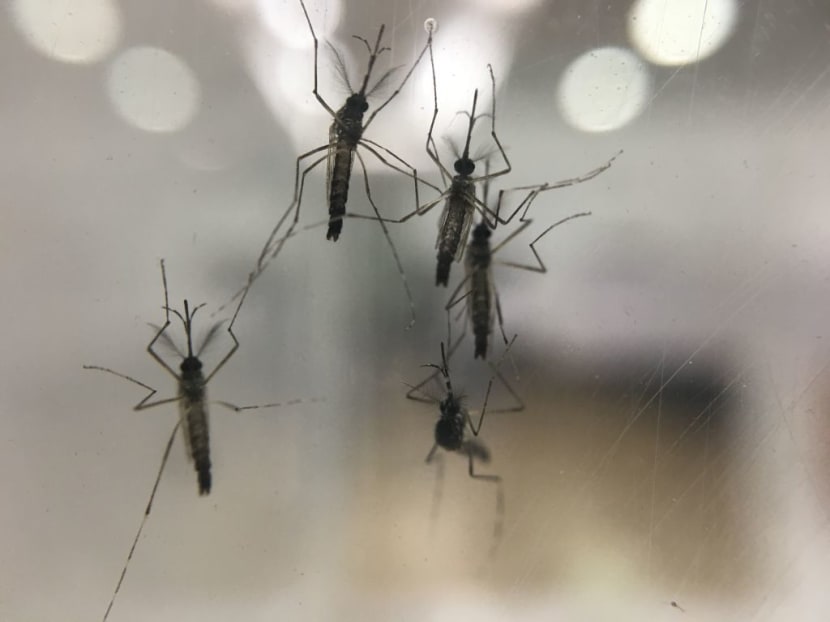Mozzies pose unexpected challenges to Singapore’s Wolbachia project
SINGAPORE – A larger trial of Wolbachia-carrying Aedes aegypti mosquitoes will be delayed, after a recent field study at three sites threw up unexpected challenges in the form of mosquito movements.
SINGAPORE – A larger trial of Wolbachia-carrying Aedes aegypti mosquitoes will be delayed, after a recent field study at three sites threw up unexpected challenges in the form of mosquito movements.
Aedes aegypti mosquitoes from surrounding areas moved easily into the three sites – Braddell Heights, Tampines West and Nee Soon East – where their laboratory-modified male counterparts had been released. This hampered the latter’s ability to suppress the Aedes aegypti population at the release sites, said the National Environment Agency (NEA) on Friday (Dec 8).
A second challenge was the insufficient numbers of male Wolbachia-infected mosquitoes that reached higher floors of some housing blocks. This hampered suppression at high-rise blocks that had more Aedes aegypti mosquitoes at the higher floors.
Wolbachia is a naturally occurring bacterium found in more than 60 per cent of insect species, but not the Aedes aegypti mosquito – which spreads dreaded diseases like dengue and chikungunya.
When male Aedes aegypti mosquitoes that have been infected with Wolbachia are released and mate with females, the eggs do not hatch.
In addition to longstanding measures such as the destruction of breeding sites, this is a potential way to keep the mosquito population at a level where dengue transmission cannot be sustained.
The field study involving Braddell Heights, Tampines West and Nee Soon East began in October and November last year and lasted for about six months.
A larger suppression trial was to have started this year, but no date has now been set, after an expert panel advised the NEA to conduct further field studies.
A second field study will start in the second quarter of next year, with details on its scope and locations to be announced later, said the NEA.
Chairman of the Dengue Expert Advisory Panel, Professor Duane Gubler of Duke-NUS Medical School, said NEA would need to understand if there are potential barriers – such as roads, expressways and parks – that can stop the Aedes mosquitoes from entering the test sites.
“NEA’s Phase One field study has garnered valuable data, but it is important that further field studies be conducted to address the unique challenges that were surfaced during the study so that future application of this exciting technology can proceed more effectively,” he said.
The field study found that half the Aedes mosquito eggs collected from the release sites did not hatch. This means the Wolbachia-carrying male mosquitoes successfully mated with some Aedes aegypti females. But a larger reduction of hatched eggs and the adult population will be needed to suppress the Aedes population, said NEA.
The authorities also found that small releases of female Wolbachia-Aedes – which inadvertently slipped through during the sorting process - could see them taking over and becoming the dominant mosquito strain here. This would hamper the effort to use male Wolbachia-Aedes to suppress the population.
Improvements to existing sorting methods need to be explored, said NEA.
Careful and thorough studies have to be conducted over “several years” to ensure the technology is applied in the most effective way in Singapore’s unique urban landscape, NEA added.







